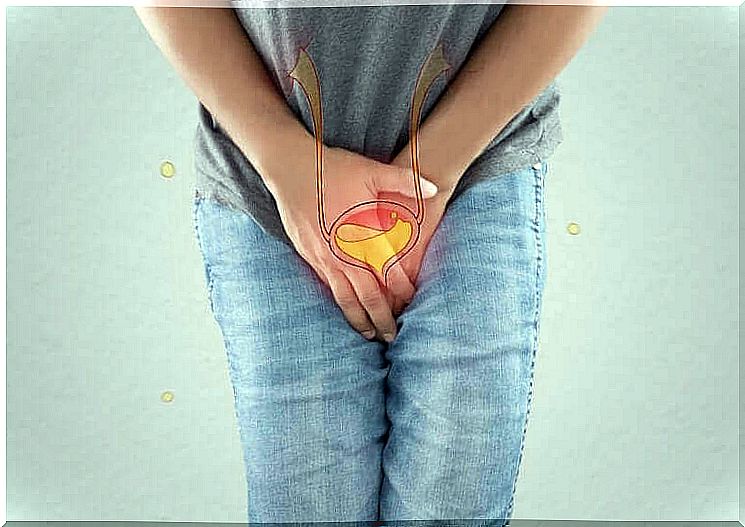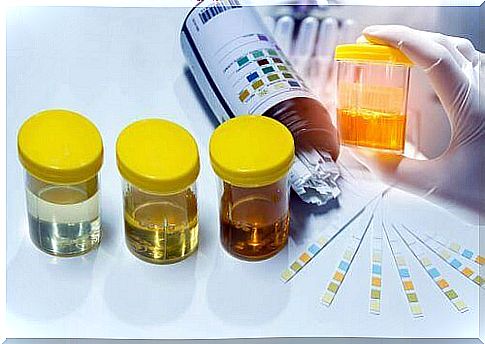Presence Of Nitrites In Urine
Presence of nitrites in urine is a sign of a urinary tract infection. It is not always requested systematically, but can be used by the doctor to guide the diagnosis in case of doubt. Let’s see how it goes in this article!

Nitrites in urine are substances that are diagnostically important in guiding the suspicion of a urinary tract infection. Normally, there should be no nitrites in human urine. Their presence is abnormal.
Urine is the fluid made by the kidneys to expel unnecessary waste from the body. By expelling them, it is possible to maintain the filtration of the blood as a defense.
Among the substances that urine expels are nitrates. Although they look like nitrites, they are not the same. Chemically, there are differences between them. This is why it is normal to find nitrates in urine, not nitrites.
Nitrates found in urine, when found with certain bacteria, are converted to nitrites. This is why the nitrite test is associated with UTIs, as bacteria must be present to exist as such.
Nitrites don’t exist just because of bacteria. Substances such as potassium nitrite or sodium nitrite are used in the food industry to artificially enhance the red color of meats, for example.
Vegetables, on the other hand, often have nitrates among their compounds. Green leafy vegetables, beets, and radishes are rich sources of nitrates. The World Health Organization (WHO) has set a daily limit of 3.7 milligrams per kilogram of human weight.
Nitrates that the body cannot use and that it excretes in urine can be absorbed by some bacteria to be turned into nitrites, as we have already said. But not all bacteria have this ability. The following are most often responsible for this process:
- Eschericha coli
- Enterobacteriaceae
- Proteus mirabilis
- Enterococo
When is the urine nitrite test indicated?
Some symptoms are characteristic of a urinary tract infection and make it suspicious. Doctors direct their diagnosis to cystitis when a person reports certain classic signs. These symptoms are:
- Dysuria: difficulty urinating
- Pain or burning when urinating
- Urine color change
- Pollakiuria: the urge to urinate all the time
- Fever
If you have any of these characteristics, you can order a urine nitrite test. This determination is not made in isolation, but is part of the complete biochemical examination of urine.
It is common to combine the urine nitrite test with the leukocyte esterase test. A positive result on both tests is very indicative of a urinary tract infection.
Leukocyte esterase is an enzyme produced by neutrophils, basophils, eosinophils and monocytes. They are all white blood cells. A positive urine test indirectly indicates the presence of white blood cells due to infection.

What is the urine nitrite test?
After your doctor orders a complete urine test, including nitrites, the task of collecting the sample begins. This point is very important to ensure that the work of the biochemist leads to reliable results.
The collection should reject the first stream of urine, which is poured down the toilet, and collect the second stream in a container. A sample taken several hours before without having urinated will be more reliable, for example, in the morning on waking.
The biochemist inserts a test strip into the urine to be tested. Test strips contain substances that change color when they detect what they want to measure.
Usually, test strips don’t measure one thing, but contain multiple reagents to make the process more efficient. A single strip can detect nitrites, glucose, esterase and proteins.
Although they depend on the brand, reagents for nitrites in urine often turn pink when detected. However, each manufacturer specifies the colors and their interpretation on the packaging of the bands.

How to interpret the results?
So what happens if the urine nitrite test is positive? Suppose a person visits for urinary burns and fever, the doctor orders a general urine test, and the lab reports positive nitrites. What to do ?
The positive result suggests a urinary tract infection. If you add an esterase positive leukocyte to it, you practically get a diagnosis. The professional can indicate antibiotic treatment without waiting for the results of a urine culture. In any case, he reserves the right to subsequently modify the antibiotic chosen.
It is important to emphasize that positive nitrites do not exclude the realization of a urine culture. Culture remains the test that confirms the diagnosis of UTI and defines the type of antibiotic to use.









